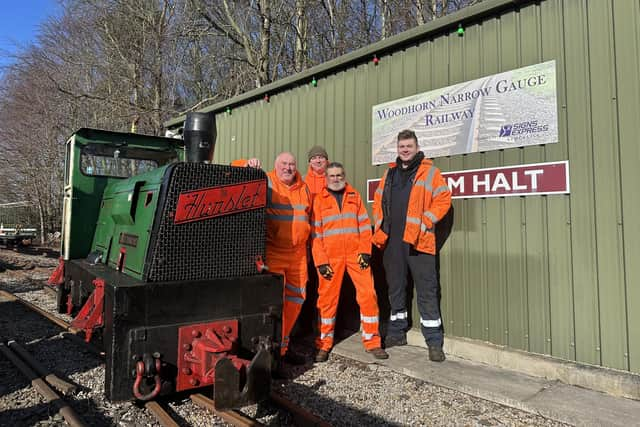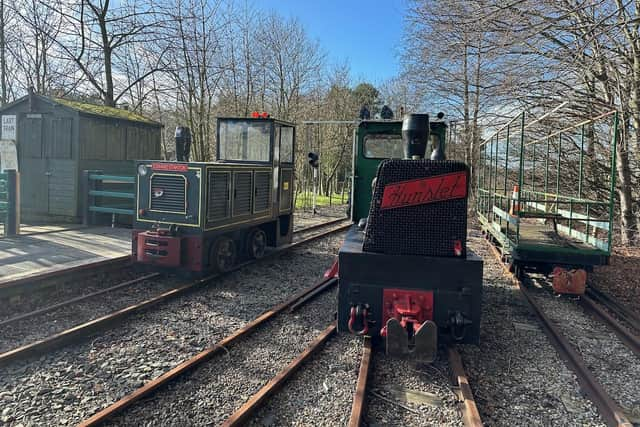New volunteers working to restore Woodhorn Narrow Gauge Railway in Ashington
and live on Freeview channel 276
Woodhorn Narrow Gauge Railway originally opened in the 90s after track, three carriages, and an underground engine turned training engine from Vane Tempest Colliery in County Durham were donated in 1991.
It ran successfully for more than 20 years and acquired two more engines, one used to build the Channel Tunnel and an underground mining shunter train. However, the railway closed down in 2018 due to a lack of volunteers and its condition has since deteriorated.
Advertisement
Hide AdAdvertisement
Hide AdNow a new group of volunteers have taken responsibility for the railway and launched a project to see it reopened within five years.


One such volunteer, Colin Heath, is “over the moon” with progress so far, and has been “surprised” by the community support the group has already received.
He said: “There are only eight of us. There are a couple of veterans, a couple of ex-engineers.
“Everybody is local and just wanted something to do, a new challenge, to stop [the engines] ending up on a scrap heap.”
Advertisement
Hide AdAdvertisement
Hide AdThe 57-year-old added: “Ashington needs something, to have a new attraction. It is a bit of our heritage as well.”


The track runs from Woodhorn Museum to the lakeside in Queen Elizabeth II Country Park.
In only six months the crew have returned the railway’s three engines to working order and are beginning to raise money to pay for the restoration of the tracks, as well as attempting to recruit more volunteers.
Colin, from East Sleekburn, said: “None of them worked at all. We have got them running but now we want to make them fully compliant for the rail regulators. The carriages are the same.
Advertisement
Hide AdAdvertisement
Hide Ad“We are starting to get the platform and buildings done at the museum end but we have still got to renovate the platform at the lakeside end.
“The kilometre of track all needs to be completely lifted. The timescale on it is how quickly we can afford to pay for new sleepers and ballast.”
The rails are in good condition but all 1,400 sleepers must be replaced. While the group are confident the railway will be running within five years, they are hopeful it could be ready in as little as two.
Colin, a former soldier, has post-traumatic stress disorder, and becoming involved with the project has helped his well-being and keeps him motivated.
Advertisement
Hide AdAdvertisement
Hide AdWorking on the railway also allows the former engineers to keep using their skills and pass on their expertise after retirement.
Colin said: “They share how they are feeling, share their knowledge, unload their life really.
“It is giving me great motivation to go somewhere every week, have people that I can trust, and know that it is a safe environment.
“I come away from it every week thinking I have done a bit more. Even if it is just a little job done we achieve something.”
Colin added: “One of the volunteers we have got, he has got involved because he remembers taking his own children and grandchildren on it from years ago and he wants to do it again.”